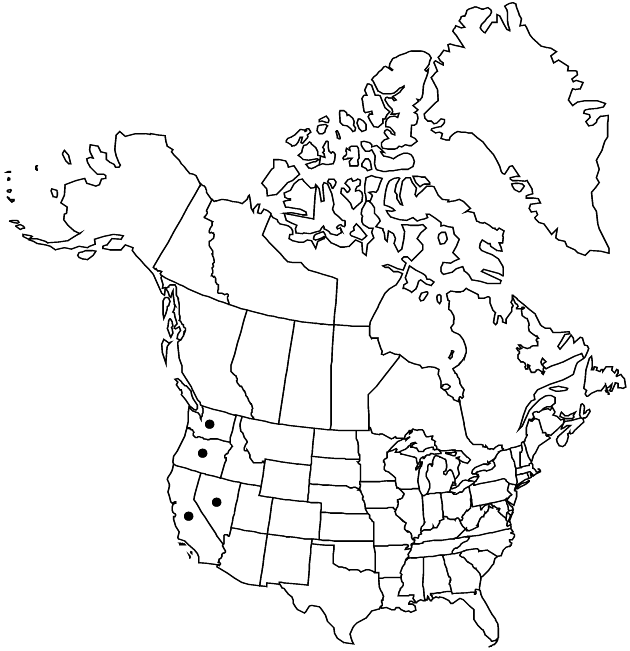Arnica nevadensis
Proc. Amer. Acad. Arts 19: 55. 1883.
Common names: Nevada arnica Sierra arnica
Synonyms: Arnica tomentella Greene
Revision as of 20:41, 16 December 2019 by FNA>Volume Importer
Plants 10–50 cm. Stems simple. Leaves 2–3 pairs, mostly cauline (basal leaves often persistent on sterile rosettes); petiolate (petioles narrowly to broadly winged); blades elliptic to ovate, 3–8 × 2–4 cm, margins entire or denticulate, apices acute to rounded, faces stipitate-glandular. Heads 1(–3). Involucres campanulate-turbinate. Phyllaries 10–16, oblanceolate. Ray florets 6–14; corollas yellow. Disc florets: corollas yellow; anthers yellow. Cypselae dark gray, 6–9 mm, stipitate-glandular; pappi white or tawny, bristles barbellate to subplumose. 2n = 76.
Phenology: Flowering Jul–Aug.
Habitat: Coniferous forests, meadows, rocky slopes
Elevation: 1500–3000 m
Distribution

Calif., Nev., Oreg., Wash.
Discussion
Selected References
None.
Lower Taxa
None.